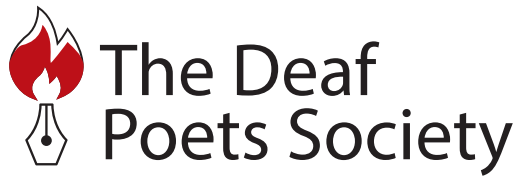Ava C. Cipri, Cyrée Jarelle Johnson, and Sarah Katz
Editors' Note
There’s such love in these poems.
Each poet—whether they’re meditating on the violence of white supremacy or making intimate the phobia of driving—writes from a commitment to define disability as an illuminating and even divine aspect of the human landscape. A landscape of affection. Of inarguable beauty.
Kay Ulanday Barrett’s “More than organs,” for example, explores the disabled body as a state of sublime in-between-ness—in between life and death or pain and painlessness—which calls to my (Sarah's) mind a quote from The Wisdom of Insecurity by Alan Watts: “The notion of security is based on the feeling that there is something within us which is permanent, something which endures through all the days and changes of life.” (78) If there’s anything that endures, it’s the body-not-in-stasis—for each one of us is in a constant state of indeterminacy. Therefore, any sense of security in a body that doesn’t change over time, that isn’t responsive to environments, that isn’t prone to decay, is necessarily false. Barrett so effectively illustrates that changing body as triumphantly radiant in the final stanzas of his poem, which reads:
If I told you that my life is basically cloud cover, between shade and safe haven, between starling and storm, you’d get why each cough is the split broken back of a palm tree, why my own palms
hold out to the air and
say hello,
say I missed you,
say please stay with me here
I sense that there’s a unique power in defining this state of being as a disabled person, even though although we’re all—disabled or abled—in an uncertain bodily state. Within the intimacy of that knowing is a crip wisdom—an intimacy that Barrett so deeply and lovingly conveys, too, in his second poem, “To be underwater”:
here’s a promise:
dare to press an ear against my chest
and on this love,
we’ll grow scales for every current
we’ll part every sea like scripture.
So to be disabled is to be divine: capable of installing a new creation myth. That poetics comes through, too, in Andrea Carter Brown’s “To an Unknown Goddess,” where two disabled characters—children and fellow goddesses—join in a sort of Edenic or pastoral landscape, “stranded here together on this Adirondack porch.”
Similarly, Leah Lakshmi Piepzna-Samarasinha’s “Adaptive device” offers to hold readers in the way that our adaptive devices can form the very seat of ourselves, act like a soft chair for sitting in. (My own hearing aids are, indeed, my comfort zone, although I often forget that they're there, tucked away as they are.) And Chelsea Grimmer's epistolary poems read as confessions, love letters to those who so often surround us when we're in the depths of chronic illness: doctors and our pets.
Isis Nelson’s “blackness in america (hurts),” a powerful epic written by a 15-year-old poet, is tough love, a demand for action, an elegy for black bodies and for all bodies that bear the brunt of white supremacy. They write the following:
every human feels the pain of oppressed, enslaved, and suffering peoples /
every invisible chain can be easily seen once viewed with empathy and compassion for others /
and, later,
have you ever stared at the abyss and had it stare back at you?
that’s what being black in america is like /
This poem puts another lens on the deep need to reclaim and redefine the Deaf and/or disabled body—to send every person back to themselves, into a space of compassion.
And finally, in Eileen Murphy’s “Down to Zero,” is a landscape I know very well: the phobia of driving. The poem unfolds in a way that is as perturbing as the anxiety itself feels, but it also acts a way into the psychic energy of the speaker, her vulnerability. To live there and feel the resolution unfold is to heal. I’ve been carved a space to sit down, to feel the valuable, exposed thoughts and feelings of a friend.
As I reflect on these poems of Issue 3, I feel we’ve traveled a long journey already since our founding in March 2016. The founding was in the midst of a new movement led by Deaf and disabled Americans—before the movement, the election focused on the usual (albeit important) topics: women’s reproductive rights, mass incarceration, immigration, LGBTQ rights—but without the nuance an intersectional lens would provide. The movement has started to turn that tide.
Now, we find ourselves on the other side of the election, our expectations understandably blunted, and our fears heightened for so many reasons. But you know what? We Deaf and disabled folks have been here before. We’ve always lived this, which means the fight isn't over. The movement continues.
Never forget that you matter. We matter. And we will not give up. In the meantime: here's the fuel for your fight.
